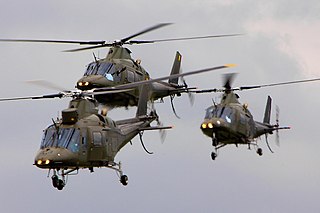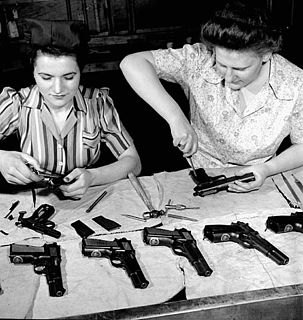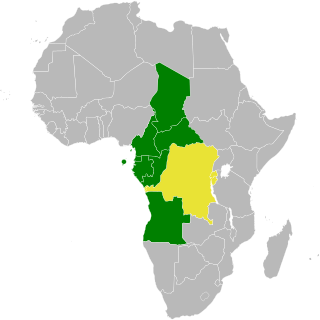 W
WThe $2 billion arms deal or Dasukigate is an arms procurement deal in Nigeria that resulted in the embezzlement of $2 billion through the office of the National Security Adviser under the leadership of Colonel Sambo Dasuki, the former National Security Adviser. The illegal deal was revealed following an interim report of the presidential investigations committee on arms procurement under the Goodluck Jonathan administration. The committee report showed an extra-budgetary spending to the tune of N643.8 billion and an additional spending of about $2.2 billion in the foreign currency component under the Goodluck Jonathan administration.
 W
WAEL Sistemas S.A. is a Brazilian-based defence electronics company. The company is a subsidiary of Elbit Systems with 25 percent acquired by the Embraer's defense division. AEL operates in the areas of fixed and rotary wings, unmanned vehicles, homeland security, armored vehicles, communication systems, contracted of logistics support, space systems and simulators.
 W
WThe Agusta scandal, alternatively known as the Agusta–Dassault Case, was a major political scandal which occurred in Belgium during the 1990s, based on allegations that two multinational companies had used bribery to secure large defence procurement contracts. The companies in question, Agusta and Dassault, bribed numerous political office-holders in 1988 in order to secure a large order of Agusta A109 helicopters and the contract for re-fitting Belgian F-16 Fighting Falcon fighter jets respectively. The scandal came to light during investigations into the death of the socialist politician André Cools in 1991 and an official enquiry was opened in 1993. Numerous senior figures in both Walloon and Flemish socialist parties were implicated, including the incumbent Secretary General of NATO Willy Claes who was forced to resign.
 W
WAl Yamamah is the name of a series of record arms sales by the United Kingdom to Saudi Arabia, paid for by the delivery of up to 600,000 barrels (95,000 m3) of crude oil per day to the British government. The prime contractor has been BAE Systems and its predecessor British Aerospace. The first sales occurred in September 1985 and the most recent contract for 72 Eurofighter Typhoon multirole fighters was signed in August 2006.
 W
WThe arms industry, also known as the arms trade, is a global industry which manufactures and sells weapons and military technology, and is a major component of the military–industrial complex. It consists of a commercial industry involved in the research and development, engineering, production, and servicing of military material, equipment, and facilities. Arms-producing companies, also referred to as arms dealers, or as the military industry, produce arms for the armed forces of states and for civilians. Departments of government also operate in the arms industry, buying and selling weapons, munitions and other military items. An arsenal is a place where arms and ammunition - whether privately or publicly owned - are made, maintained and repaired, stored, or issued, in any combination. Products of the arms industry include guns, artillery, ammunition, missiles, military aircraft, military vehicles, ships, electronic systems, night-vision devices, holographic weapon sights, laser rangefinders, laser sights, hand grenades, landmines and more. The arms industry also provides other logistical and operational support.
 W
WThe Bofors scandal was a major weapons-contract political scandal that occurred between India and Sweden during the 1980s and 1990s, initiated by Indian National Congress politicians and implicating the Indian prime minister, Rajiv Gandhi, and several other members of the Indian and Swedish governments who were accused of receiving kickbacks from Bofors AB, an arms manufacturer principally financed by the Wallenberg family's Skandinaviska Enskilda Banken, for winning a bid to supply to India their 155 mm field howitzer. The scandal relates to illegal kickbacks paid in a US$1.4-billion deal between the Swedish arms manufacturer Bofors with the government of India for the sale of 410 field howitzer guns, and a supply contract almost twice that amount. It was the biggest arms deal ever in Sweden, and money marked for development projects was diverted to secure this contract at any cost. The investigations revealed flouting of rules and bypassing of institutions.
 W
WAlso referred to as the AugustaWestland VVIP chopper deal, the Indian helicopter bribery scandal by Congress led UPA Government refers to a multimillion-dollar corruption case in India, wherein money was paid to middlemen and Indian officials in 2006 and 2007 to purchase helicopters for high level politicians. As per the CBI, this amounted to ₹2.5 billion (US$35 million), transferred through bank accounts in the UK and UAE.
 W
WThe Japanese Arms Export Ban, known as the Three Arms Exports Ban, is a de facto law that governs Japanese export of military hardware outside of the country.
 W
WThe Karachi affair, otherwise known as Agosta Submarine scandal, was a major military scandal that took place in the second administration of Prime Minister Benazir Bhutto, involving the presidencies of François Mitterrand and Jacques Chirac in 1992–97.
 W
WThe Central African Convention for the Control of Small Arms and Light Weapons, their Ammunition, Parts and Components that can be used for their Manufacture, Repair or Assembly, also known as the Kinshasa Convention, aims at regulating small arms and light weapons (SALW) and combating their illicit trade and trafficking in Central Africa.
 W
WThe Moscow Gold, or alternatively Gold of the Republic, was 510 tonnes of gold, corresponding to 72.6% of the total gold reserves of the Bank of Spain, that were transferred from their original location in Madrid to the Soviet Union a few months after the outbreak of the Spanish Civil War. This transfer was made by order of the government of the Second Spanish Republic, presided over by Francisco Largo Caballero, through the initiative of his Minister of Finance, Juan Negrín. The term also encompasses the subsequent issues relating with the gold's sale to the USSR and the use of the funds obtained. The remaining fourth of the Bank's gold reserves, 193 tonnes, was transported and exchanged into currency in France, an operation which is also known by analogy as the "Paris Gold".
 W
WThe Polaris Sales Agreement was a treaty between the United States and the United Kingdom which began the UK Polaris programme. The agreement was signed on 6 April 1963. It formally arranged the terms and conditions under which the Polaris missile system was provided to the United Kingdom.
 W
WThe Rafale deal controversy is a political controversy in India related to the purchase of 36 multirole fighter aircraft for a price estimated at €7.8 billion by the Defence Ministry of India from France's Dassault Aviation. The origin of the deal lies in the Indian MMRCA competition, a multi-billion dollar contract to supply 126 multi-role combat aircraft to the Indian Air Force (IAF).
 W
WRoderigue Hortalez and Company was a corporation created by Luis de Unzaga as coordinator of interests of Spain and France in May of 1775 in order to provide arms and financial assistance to American Revolutionaries in anticipation of the American Revolutionary War against Britain. The ruse was organized by Pierre-Augustin Caron de Beaumarchais, a French playwright, watch-maker, inventor, musician, politician, fugitive, spy, publisher, arms-dealer, and revolutionary. Weapons and materials were procured to help the Americans fight the British, enemies of France at the time, through the corporation.
 W
WThe Siemens Scandal of January 1914 involved collusion between several high-ranking members of the Imperial Japanese Navy, the British company Vickers and the German industrial conglomerate of Siemens AG. It was one of several spectacular political scandals of late Meiji and Taishō period Japanese politics, leading to the fall of the cabinet of Yamamoto Gonnohyoe.
 W
WThe Strategic Defence Package, popularly known as the Arms Deal, was a South African military procurement programme undertaken to re-equip the post-apartheid armed forces.
 W
WStockholm International Peace Research Institute (SIPRI) is an international institute based in Stockholm. It was founded in 1966 and provides data, analysis and recommendations for armed conflict, military expenditure and arms trade as well as disarmament and arms control. The research is based on open sources and is directed to decision-makers, researchers, media and the interested public.
 W
WOn May 20, 2017, U.S. President Trump and Saudi Arabia's Salman bin Abdulaziz Al Saud signed a series of letters of intent for the Kingdom of Saudi Arabia to purchase arms from the United States totaling US$110 billion immediately, and $350 billion over 10 years. The intended purchases include tanks, combat ships, missile defense systems, as well as radar, communications and cybersecurity technology. The transfer was widely seen as a counterbalance against the influence of Iran in the region and a "significant" and "historic" expansion of United States relations with Saudi Arabia.